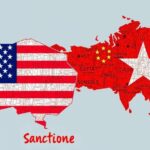China’s Strategic Recruitment of PhD Candidates from the US
Top Chinese universities, notably Fudan University, are recruiting Chinese students abroad directly into PhD programs amidst tightening funding and admissions in the US. This recruitment allows students to bypass traditional prerequisites, targeting top international institutions across diverse disciplines. The initiative reflects China’s strategy to attract academic talent and adapt to global educational shifts.
China’s leading universities are proactively attracting Chinese nationals studying abroad to transition directly into PhD programs, in response to reduced funding and graduate admission suspensions in the United States. This recruitment initiative reflects Beijing’s ambition to retain and cultivate talent amid increasing geopolitical tensions. Fudan University, a highly regarded public institution in Shanghai, initiated such direct admissions for overseas Chinese undergraduates in 2022, with a recent recruitment announcement aimed at the 2025 academic year igniting widespread discussions.
The program simplifies the traditional process by waiving the standard requirements for a master’s degree or endorsements from Chinese universities, targeting students from the world’s top 100 institutions across 18 disciplines, including prominent fields like biomedical engineering, clinical medicine, and specific humanities areas. A faculty member from Fudan, identified by the surname Wang, acknowledged that such direct PhD admissions are unusual in China, where higher education typically mandates previous qualification requirements.
Despite the scarcity of this practice, Professor Wang endorsed the initiative, emphasizing the university’s commitment to fulfilling its social responsibilities and adapting to the changing educational landscape. This effort is seen as critical during a time when American universities are grappling with financing challenges and tightening graduate program offerings.
In conclusion, Fudan University and other leading Chinese institutions are strategically positioning themselves to attract brilliant Chinese students from abroad by offering enticing PhD opportunities free from conventional admission hurdles. This trend indicates a significant shift in the academic landscape, driven by geopolitical factors and funding challenges faced by American educational entities. As the US faces limitations, China’s academic institutions are poised to gain from this influx of talent, enhancing their educational offerings and research capabilities.
Original Source: www.scmp.com








Post Comment